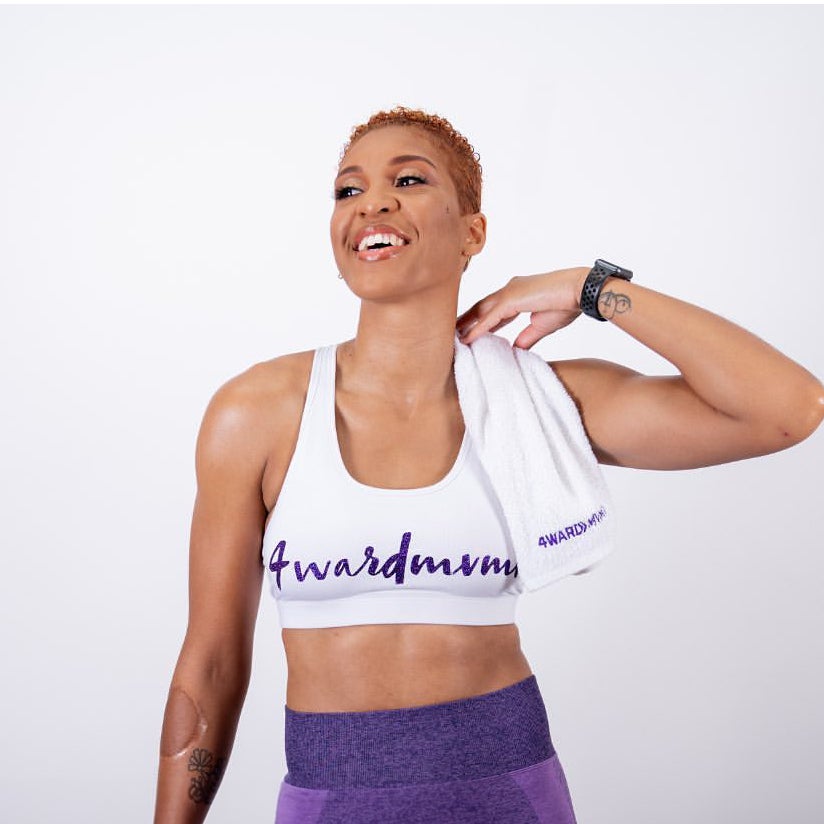Sherrie Session ’12, communication studies, split her time at the University of Rhode Island between being a student and an athlete. After professionally playing and coaching basketball, she founded 4WARDMVMT, an organization that helps female athletes connect to their personal brand. Today, Session is still a coach and professional athlete.
Why did you choose to study at URI?
I chose URI on the basis of their loyalty during the recruiting process. As a freshman in high school, URI was the first recruiting mail I received. They continued to follow me for the duration of my high school career and expressed their high interest in me as a student-athlete.
As a west coast kid, being near the water was also something I enjoyed about my initial visit. To this day, some of my fondest memories are my summers spent on the beach after class and summer workouts. I had played basketball mostly on the west coast, and I was looking for an east coast experience. I knew that URI would give me that both athletically and geographically. I was eager to explore a side of the country I had not had many opportunities to explore until then.
What made you choose to study communications?
I initially entered as a declared business major, but after a tough first year, I was encouraged by my academic advisor to take a look at communications. Many had suggested that I look into sports broadcasting as a career, and I really thought that would be the path for me. However, after taking a semester of media and getting behind the camera, I was not sold. I really enjoyed writing and connecting with people and their stories.
I eventually would go back to school to receive a master’s degree in communication from John Carroll University. Here I learned to make more use of communication from a lens of data. Many of the projects I worked on served to understand the current climate of an issue and implement solutions based on data, resources, and innovative thinking.
Think Big, We Do- is a motto I continue to live by today. I am so grateful for that tough first year that allowed me to explore other options. I love the study of communications and hope to continue impacting the world through this lens.
How do you use the skills you learned while you were at URI today?
I use the skills I learned in the program every day. There was always something that stood out to me from every professor, mostly from their life experience. Many of their careers had led them to this point of teaching and passing along information they wish they would have had earlier or that they could see being useful in this ever-evolving world. While there were always foundational disciplines to the study, I always enjoyed how practical many of the professors made the learning, but also challenging us to think bigger. As I enter into my 11th year of coaching, I carry this motto more than ever. I always start with the basics and create opportunities for practice and repetition. Then we ask the question, why- and continue to think bigger and challenge what we know.
Describe your favorite memory from your time as a student.
My favorite memory would have to be my “After Dinner Speech” I gave senior year. It had been a journey of three years watching myself and my classmates grow in this study and put together a very creative speech that mostly encompassed our complete experience. The maturity and excitement to have the world at our fingertips was very riveting but also bittersweet. We were all moving on to start other journeys of the unknown and essentially become freshmen again in a world we had to navigate. We were moved to emotional tears but also belly laughter all in one evening. It was a great way to pay homage to all that we had experienced and everything that lay ahead.
What one piece of advice would you give Harrington students who are preparing to enter the workforce?
I entered the workforce as a paralegal for a small law firm in Los Angeles. I had no intention of going to law school, but it was an internship that worked with the hours I had available to make some money while I pursued my dream of going overseas to play basketball professionally.
I did that for about six months before I took a volunteer coaching position at Hope International University in Fullerton, California. I was overqualified for the coaching position; however, the school didn’t have the budget for another assistant. I used that year to gain pivotal experience, and just as I was about to give up on my dream of playing professionally, I heard back from a club in Switzerland and signed my first contract.
I say all of that to say: Don’t ever give up. The road will have some twists and turns, and you may have to try a few things before landing in the sweet spot. Use every opportunity as a building block. There are more people willing to help a dreamer than those trying to tear you down. Stick with those people, and continue to follow your passion that hopefully will continue to help you live in your purpose.

